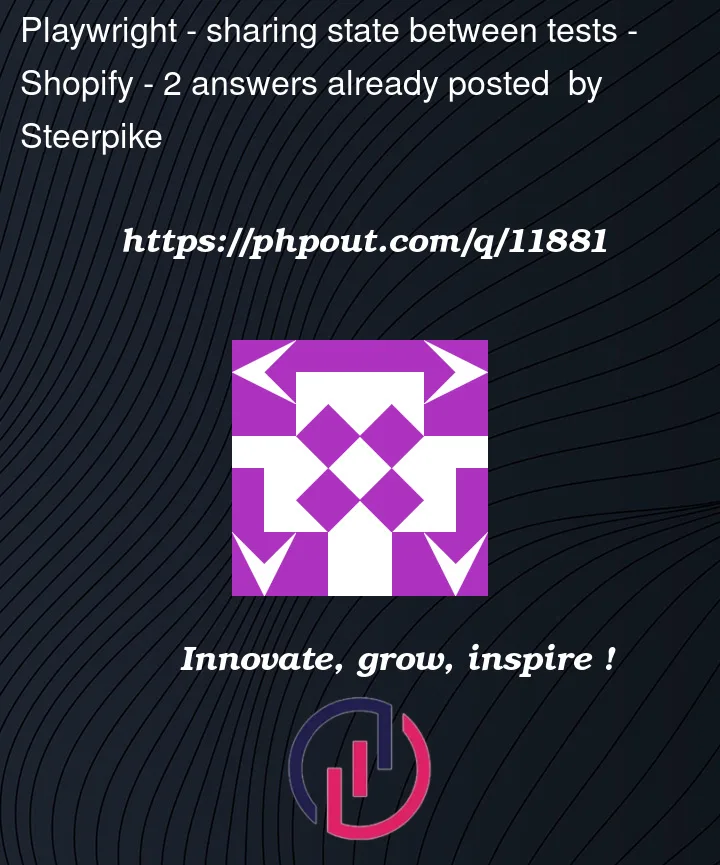I’m learning Playwright and JavaScript concurrently so this may be an elementary question – I’m wondering how people would recommend sharing state – variable customerId in this case – between tests.
Example:
test.describe.only('Generate a new customer', () => {
let customerId
let baseUrl = process.env.SHOP_URL
test('Create new customer', async ({ request }) => {
const response = await request.post(baseUrl + `/shopify/v5/customer`, {})
const responseBody = JSON.parse(await response.text())
expect(response.status()).toBe(200)
customerId = responseBody.customerId //need to persist customerId to pass into following test
})
test('Update customer details', async ({ request }) => {
const response = await request.post(baseUrl + `/shopify/v5/customer/update`, {})
{
data: {
customerId: customerId, //customerId is undefined here
name: "Fred"
},
}
)
expect(response.status()).toBe(200)
})
the customerId is clearly out of scope in the second test. I will probably refactor these to use a library such as Axios eventually because I am using the Playwright tests to generate data – I’m not actually testing the api here. In the meantime I just need customerId to be persisted in subsequent api calls.




2
Answers
That is anti-pattern, tests should be independent especially in playwright where tests run in parallel by default:
https://playwright.dev/docs/test-parallel
You can merge those two tests into one test.
If You still want to go that way I guess You can use fixtures or hooks to make it work, here are examples:
https://playwright.dev/docs/test-fixtures#without-fixtures
To make your example work you need to run the tests in serial mode, something like this will work: